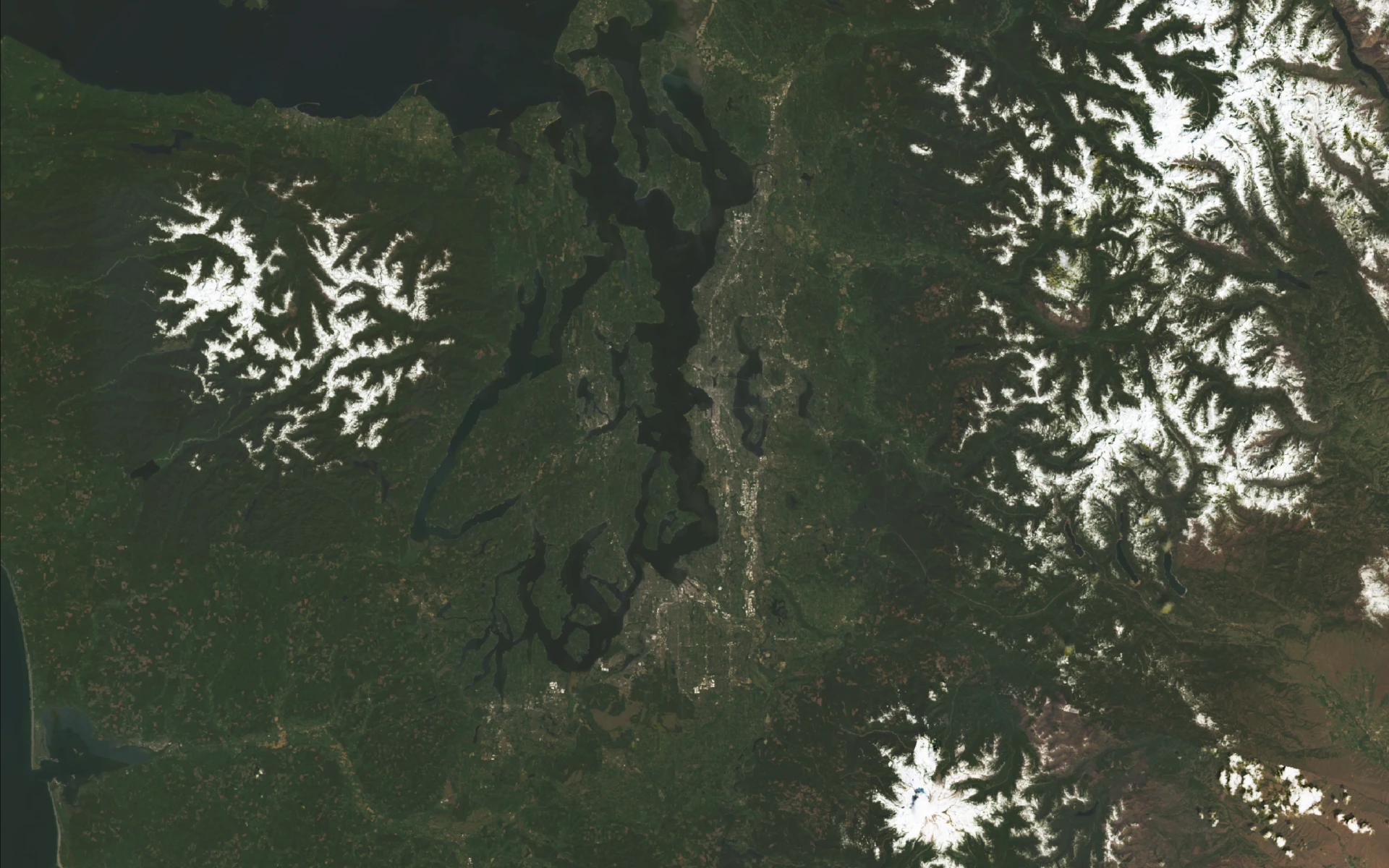A proliferation of satellite constellations and connectivity to hyperscale clouds has made geospatial data available for a wide variety of sectors and use cases: from coordinating supply chains, to managing climate risk, and planning urban infrastructure, just to name a few. Yet despite its growing importance, geospatial data remains notoriously complex and siloed across a variety of sources, including satellites, drones, and other sensors—often accessible only to experts.
To help solve this challenge, Microsoft has invested in simplifying the complex geospatial landscape—and we are excited to introduce the Public Preview of Microsoft Planetary Computer Pro, a comprehensive platform that makes it dramatically easier for organizations to harness geospatial data for real-world impact. Microsoft Planetary Computer Pro is a next-generation platform designed to bring geospatial insights into the mainstream analytics workflow. It empowers organizations to ingest, catalog, store, process, and disseminate large volumes of private geospatial data in Microsoft Azure, using familiar tools and AI-driven insights. The result? Easier access, optimized datasets, unified security, identity, and governance, and faster time to insight.
Industries are already realizing the benefits. For example, energy companies are using earth observation data to help monitor infrastructure health and anticipate maintenance needs. In agriculture, organizations are optimizing crop yields by analyzing soil conditions, weather trends, and land use patterns. Retailers are refining site selection strategies by combining demographic data with mobility and footfall analytics.
These are not isolated cases; they reflect a broader shift. As enterprises face rising pressure to become more efficient, resilient, and sustainable, the ability to operationalize geospatial data is becoming a defining competitive advantage.
Partner momentum: A thriving ecosystem
Microsoft’s commitment to working with partners is foundational to our mission.
Microsoft has been collaborating closely with Esri to integrate ArcGIS Pro and Enterprise into the platform. Esri users will be able to directly access managed content for use in imagery analysis workflows at any scale. This partnership enables geographic information system (GIS) professionals to continue using their preferred tools while benefiting from the scalability and AI capabilities of the Microsoft cloud.
Microsoft partner Xoople is a start-up launching an end-to-end Earth Intelligence system powered by a new Xoople satellite constellation and Microsoft’s Planetary Computer Pro. With the help of Planetary Computer’s efficient data ingestion, indexing, management, and processing, Xoople plans to transform the datasets and deliver the latest industry insights to end customers via the Azure Marketplace and specialized ISVs.
Microsoft’s partnerships are also helping provide value to organizations working around the world to enable a more sustainable future.
- Space Intelligence provides customers with audit-grade data on forest coverage and carbon storage for nature-based projects. Space Intelligence uses geospatial data analysis and machine learning through Microsoft Planetary Computer Pro to support zero deforestation and mass restoration. Space Intelligence required easy access in their AI/ML pipelines to a large-scale catalog of input data, both public and private, to process petabytes of data annually. Microsoft Planetary Computer Pro enabled them to scale their AI data storage layer with high-speed access, integrate through APIs, visualize data efficiently with an on-demand tiling stack, and maintain alignment between their open and closed data sources.
- Impact Observatory uses Planetary Computer Pro, Azure Batch, and proprietary models to optimize the production of their land-use land cover map product. By moving their inference pipeline on to Azure and using Azure Batch, Impact Observatory was able to run their model in parallel on 1000 VMs, utilizing a total of 1 million core hours. In less than a week, they produced their global land-use land cover map.
- EY Consulting has emerged as a pivotal force in revolutionizing geospatial capabilities across diverse industries. Their strategic collaboration with Microsoft has empowered supported customers by integrating leading cutting-edge geospatial into Azure. Through their experienced expertise in geospatial data analytics, EY Consulting has made significant strides in embedding these insights into business operations, effectively redefining the geospatial landscape.
Looking forward: Mainstreaming geospatial insights with AI-ready infrastructure
Microsoft Planetary Computer Pro helps break down the barriers of complexity by integrating directly with tools like Microsoft Fabric, Azure AI Foundry, and Power BI—along with third-party platforms. This interoperability means data analysts, developers, and business users can access and act on geospatial data from mainstream analytics workflow. More than just access, Planetary Computer Pro sets the stage for applied AI—standardizing diverse datasets in a secure, cloud-native environment to enable advanced modeling, forecasting, and decision support. This is the foundation for a future where geospatial insights can help power everyday decisions across nearly every industry.

Conclusion: Geospatial insights at your fingertips
By helping make geospatial insights more accessible, actionable, and AI-ready, Microsoft Planetary Computer Pro empowers organizations to make better decisions for their business and the planet.
The public preview of Microsoft Planetary Computer Pro is available now in select Azure regions.
To get started:
- Visit Microsoft Planetary Computer Pro.
- Review our documentation on Microsoft Planetary Computer Pro.
- Contact us at MPCPro@microsoft.com.
As the world grapples with complex challenges, Microsoft Planetary Computer Pro helps ensure that geospatial insights are no longer a luxury for specialists, but accessible to all.
The post Microsoft Planetary Computer Pro: Unlocking AI-powered geospatial insights for enterprises across industries appeared first on Microsoft Azure Blog.